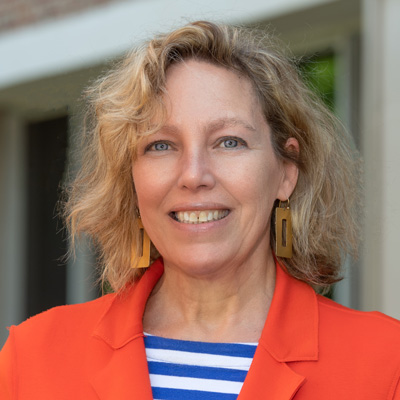Mrinalini Mitra ‘20 dreams big. A classical studies major with minors in philosophy and art history, Mitra sees a lot of problems in the world, but she also sees a lot of solutions. She founded the Panthalassa NGO to implement her strategy.
Panthalassa partners with small nonprofit organizations in communities around the world to help them find the proper resources they need to be successful. For example, it partnered with the Manya Group-Princeton Review to give 12 participants scholarships to study for the ACT, SAT, TOEFL, and IELTS.
Also falling under the Panthalassa umbrella is Women Empower Humanities (WEH), a summer program to engage young women currently enrolled in high school. The program encourages these young women to develop an interdisciplinary education grounded in the humanities and explore the issues that affect women in education.
Mitra, who hails from Lucknow, India, had noticed that students there are deterred by stereotypic institutional practices.
“To correct this imbalance in education and enhance women’s scholarship in the humanities, I believe it is essential to encourage young women in high school to depend less on the role of learning systems they are familiar with and rely more on learning based in discussion between teachers and students,” she said.
In the summer of 2018, thirty applicants attended a week-long program in Lucknow to learn and discuss issues in the humanities. The four goals: to clarify the importance of humanities; to encourage women to pursue humanities and eventually participate and contribute scholarship; to recognize diversity, and to help participants earn scholarships offered by institutions abroad and at home.
Two Denison professors — Mariana Saavedra Espinosa, assistant professor of global commerce, and Hosna Sheikholeslami, assistant professor of anthropology and sociology — traveled there to lead sessions for the young women.
During the sessions, they explored how globalization affected women’s access to education and labor opportunities in various parts of the world. Seminars challenged how communities in developing countries can alter women’s roles within their families, societies, and nations.
“As an instructor, this was an invaluable opportunity to explore my teaching in a completely new environment,” said Saavedra Espinosa. “Leading class discussion in a different cultural context was an exciting challenge that allowed me to reflect on certain teaching habits and classroom dynamics that I take for granted.”
“We live in a world where the need for human labor is rapidly decreasing, while the need for human imagination is increasing.”
Students read female-authored stories that took place in industrialized and developing countries, as well as global cities like New York City and Dubai. They learned about the impact of increasing global connections and explored the idea of earning educations overseas.
Students also kept journals throughout the program and created a capstone project. Workshops on research methods, critical reading, and writing gave students practical knowledge of practices that are used globally in undergraduate educations. The capstone project gave them an opportunity to demonstrate the critical reading, writing and research skills they learned.
While WEH inspired young women to earn an education, it also provided them the opportunity to meet and befriend other young, ambitious, diverse women. Mitra is almost like a big sister to these young women and remains in touch with them and their families.
“We live in a world where the need for human labor is rapidly decreasing, while the need for human imagination is increasing,” said Mitra. “Young women can create their own intellectual spaces and bring their activism to academia.”
WEH will hold its summer 2019 seminar in South-Asia to work with young scholars from Afghanistan, Pakistan, India, Nepal, Bhutan, Bangladesh, Sri Lanka, and Maldives.













